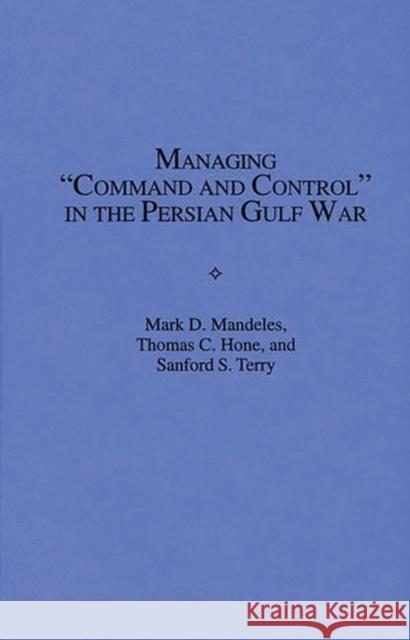Managing Command and Control in the Persian Gulf War » książka
Managing Command and Control in the Persian Gulf War
ISBN-13: 9780275952617 / Angielski / Twarda / 1996 / 192 str.
During Desert Shield, the Air Force built a very complicated organizational architecture to control large numbers of air sorties. During the air campaign itself, officers at each level of the Central Command Air Forces believed they were managing the chaos of war. Yet, when the activities of the many significant participants are pieced together, it appears that neither the planners nor Lt. Gen. Charles A. Horner, the Joint Force Air Component Commander, knew the details of what was happening in the air campaign or how well the campaign was going. There was little appreciation of the implications of complex organizational architectures for military command and control. Against a smarter and more aggressive foe, the system may well have failed.











